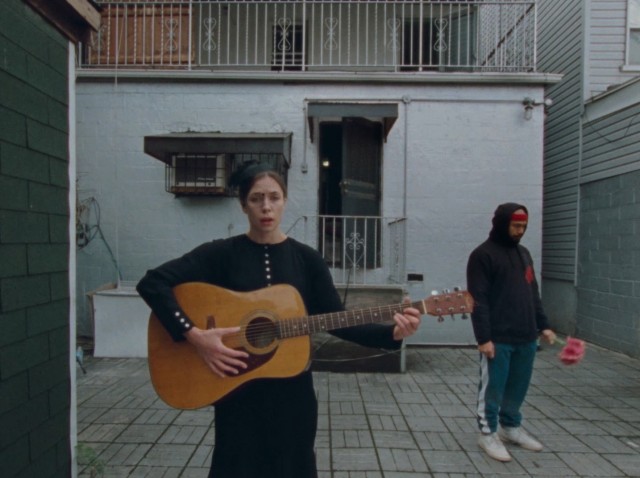When Zu takes his dog to the beach for one of their regular walks, the outing takes an unexpected turn when an octopus attacks him and then Princess Diana, the canine protagonist. Get ready for writer/director Cooper Troxell’s absurd, fun and chaotic Heptapus – A tale of loss and grief, infused with an off-kilter sense of humor that keeps you entertained and guessing where it will go next.
“I wanted to make a complex Asian-American role about masculinity”
One thing that can’t be said about Heptapus, it’s that it’s a straightforward and conventional narrative. It’s no surprise, then, that Troxell revealed his inspiration came from many ideas – ranging from grief, to the diverse ways of experiencing and sharing an experience, and the core memory of when Princess Diana passed away – and was motivated by a desire to craft a “complex Asian-American role about masculinity”. Explaining that when “baffling things” happen to him, the director has a tendency to “turn toward whatever insane quasi-spiritual framework I have to find solace”, he added that the octopus “which appears out of nowhere and disappears like lightning, is a kind of acid flashback: memories of a half-forgotten country”. Troxell expertly balances the fever-dream aspect of the film with a deeper layer that has a meaning that “mattered deeply” to him.
Shot on 16mm, the film has a grainy look and an unsettling atmosphere from the opening shot, instantly drawing you in. Heightened by the camera movements and the sound design, DP Jason Chau worked with Troxell to create a visual aesthetic reminiscent of silent comedies, injecting it with a “feeling of impossible whimsy”. He also specified that despite the aforementioned chaotic energy, with the challenge of shooting on film, every shot was precisely storyboarded. The visual flair immerses the audience in the world Troxell created, and the wild ride of its narrative.

Troxell describes the “beautiful fuzzy grain” of 16mm as like watching something that is “authentic, maybe a little homespun, an appeal directly from the heart”.
It almost gives the film a psychological thriller layer, with Zu’s state of mind echoed throughout the runtime thanks to Noah Kardos-Fein’s effective score (with TV theme by George Hutson Warren). The film’s edit style also plays with comedy and thriller tropes. Quick cuts, and brutal changes of pace keep the audience on their toes, guessing what will happen next and what Zu will be doing to deal with his anger and pain. Even the CGI used for the octopus is compelling, and does not disrupt the gritty atmosphere of the film.
Robert Lee Leng’s performance as Zu is also quite remarkable. In some scenes, without a line, he manages to play within the range necessary to make Troxell’s absurd screenplay land, while also delivering on both its comedic and its emotional levels. He makes us enjoy the insanity of the premise, while feeling his despair and confusion with his sincere and nuanced portrayal.
Fresh off its festival run, we are excited to host the online premiere of Heptapus, a film Troxell made while doing his MFA at Columbia. Currently working on a feature film set in the world of optical telegraph operators in the 19th century Midwest, titled Bird Sees Wind, the filmmaker describes it as “about the dawn of the Information Age, when people first discovered what it’s like to work for a living while having your eyeballs glued to a visual stimulus”.

 Céline Roustan
Céline Roustan